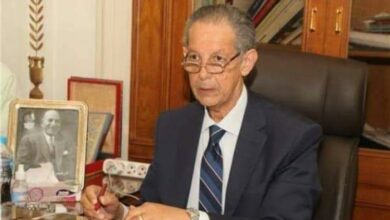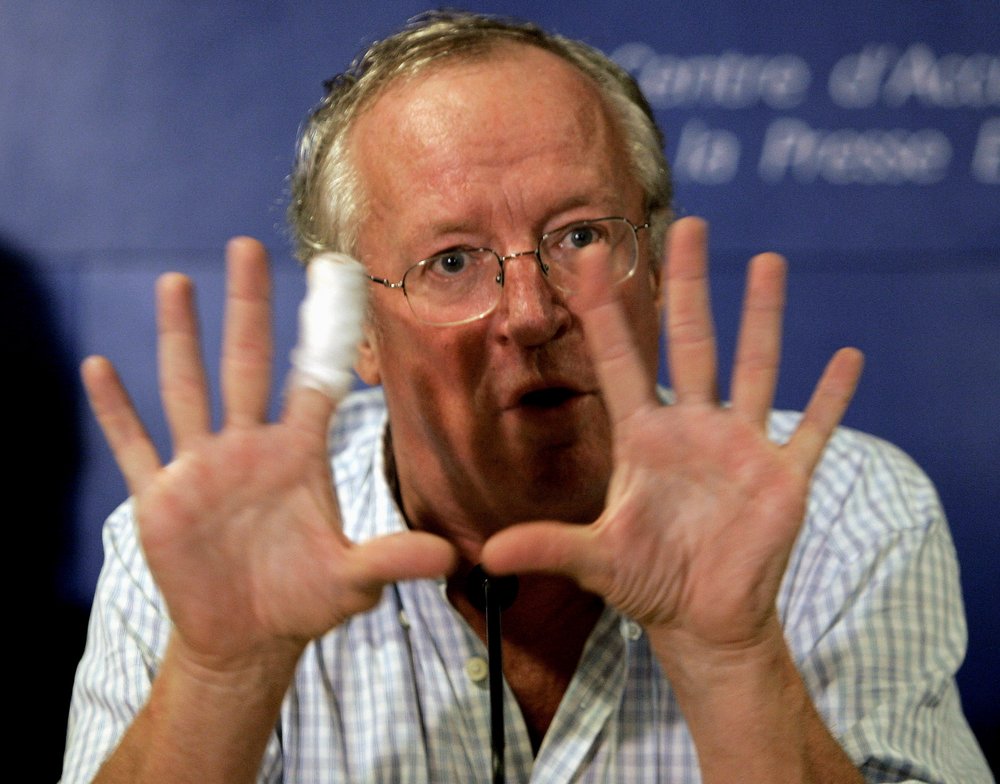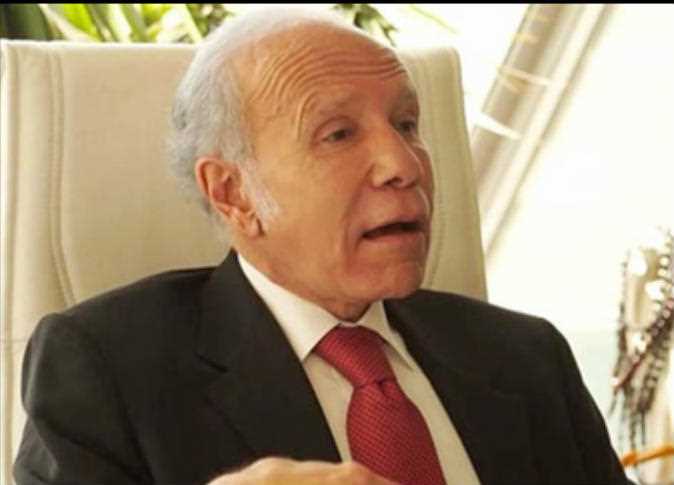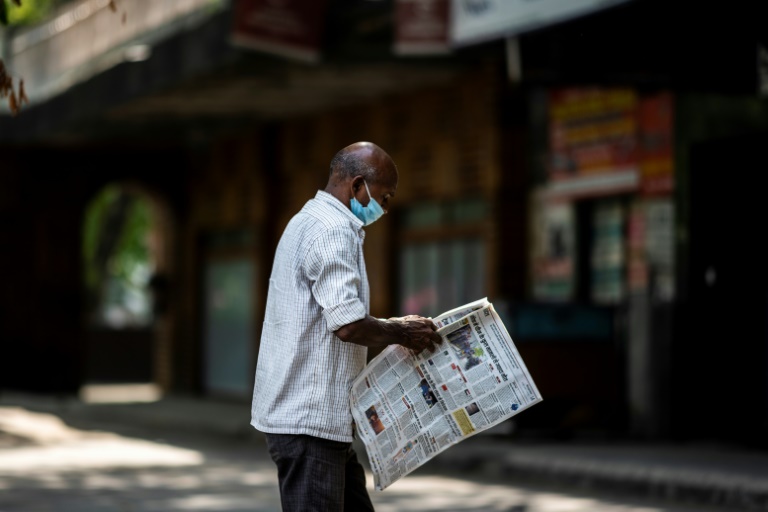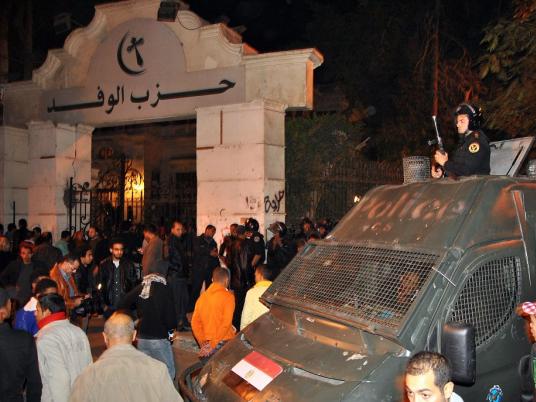
Monday’s papers indicate that the controversial results of the referendum on the draft constitution have widened the gap between Egypt’s political forces, as opposition and human rights activists claimed that Saturday’s poll is “invalid.”
According to both state-owned and independent papers, the “yes” vote had a slight lead over the “no” side after 57 percent of voters, surprisingly, approved the draft constitution, with a second round of voting still to come.
Privately owned daily Al-Tahrir leads with a headline: “The scandals of Morsy’s referendum.” The paper states that seven rights organizations released a statement Sunday demanding that the first phase of the referendum be nullified due to the alleged irregularities that occurred during the voting process.
The statement reportedly listed a number of violations including the absence of judicial supervision, inciting violence against “yes” voters, the impersonation of judges, Copts being prevented from entering some of the polling stations and the distribution of unstamped ballots.
Independent daily Al-Shorouk writes that the National Salvation Front has echoed the statement, demanding full investigations into violations committed during polls and calling for a million-man protest on Tuesday against serious fraud in the referendum.
While the high elections commission refuses to approve the preliminary results of the referendum until the second stage takes place next week, Freedom and Justice, mouthpiece of the Muslim Brotherhood’s political arm, opts for its usual victorious language, describing the referendum in a headline as a substantial move towards democracy.
The partisan paper dedicates its seventh page to accusing the National Salvation Front and independent satellite channels, including CBC, Dream, and Al-Hayat, of provoking new crises to hinder the enactment of the constitution and tarnish the images of supporters of both the Brotherhood and former Salafi presidential candidate Hazem Salah Abu Ismail.
In response to the NSF’s statement, Freedom and Justice claims on the same page that the opposition is “playing its last card” in an effort to conceal its failure to mobilize citizens to vote against the draft constitution and accuses the group of organizing another conspiracy to bring chaos in the country, referring to incidences of arson at FJP offices.
On its front page, the liberal party paper Al-Wafd publishes pictures of Abu Ismail and his supporters, who allegedly took part in a fierce attack on its headquarters Saturday, burning the building’s facade and some cars in the surrounding area.
The report says that the public prosecutor is investigating the witnesses who say that more than 500 people stormed into the building carrying knives and Molotov cocktails.
The paper raises the question of why President Mohamed Morsy is not taking a rigid stance against the “crime” of attacking the Wafd headquarters, asking, “Does silence means his acceptance?!”
Al-Sayed Al-Badawi, head of the Wafd Party, is quoted as saying in a press conference Sunday in the same paper that Al-Wafd’s journalists “are paying the cost of defending the country.” Badawi, however, assures they will not back away from their “patriotic” editorial policies.
Independent daily Al-Sabah writes that Abu Ismail denied accusations that his ultra-conservative allies participated in breaking into the Wafd Party’s headquarters. He also described Badawi’s allegations as a manipulation meant to turn away people from the referendum.
In his op-ed, Ibrahim Eissa, Al-Tarir’s editor-in-chief, assures that despite the Brotherhood’s narrow victory and its ongoing attempts to enact the constitution by carrying out different forms of electoral irregularities and through verbal and physical threats to anti-Morsy factions, the group “knows well that they can lie to themselves, but not to us.”
The vocal opposition writer believes that if rigged ballots were not included in the voting process and flagrant violations have not taken place, the “no” votes would have exceeded the “yes” ones.
He wraps up his article by pointing a finger at the Islamist president over the deepening rift between the different segments of society, saying, “Morsy succeeds in nothing but failure.”
Egypt’s papers:
Al-Ahram: Daily, state-run, largest distribution in Egypt
Al-Akhbar: Daily, state-run, second to Al-Ahram in institutional size
Al-Gomhurriya: Daily, state-run
Rose al-Youssef: Daily, state-run
Al-Dostour: Daily, privately owned
Al-Shorouk: Daily, privately owned
Al-Watan: Daily, privately owned
Al-Wafd: Daily, published by the liberal Wafd Party
Youm7: Daily, privately owned
Al-Tahrir: Daily, privately owned
Al-Sabah: Daily, privately owned
Freedom and Justice: Daily, published by the Muslim Brotherhood's Freedom and Justice Party
Sawt al-Umma: Weekly, privately owned
Al-Arabi: Weekly, published by the Nasserist Party
Al-Nour: Official paper of the Salafi Nour Party

